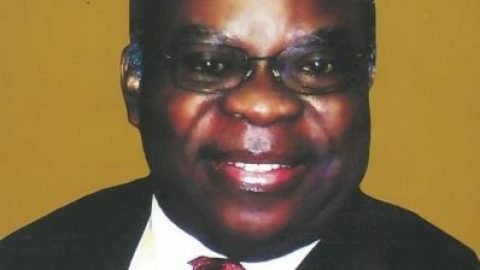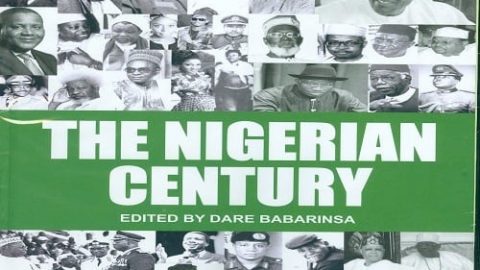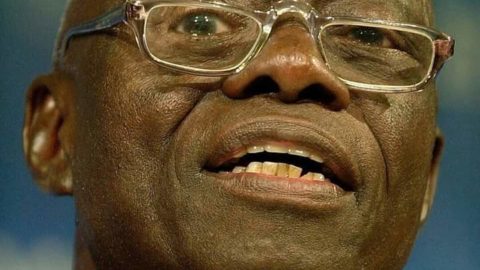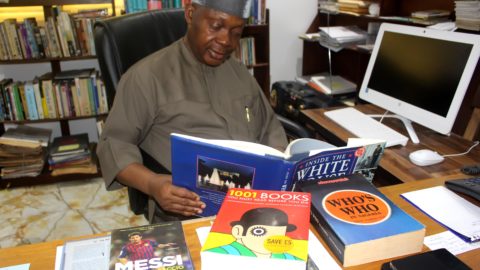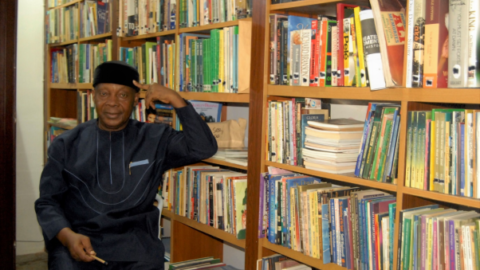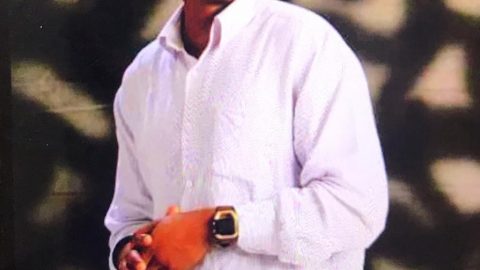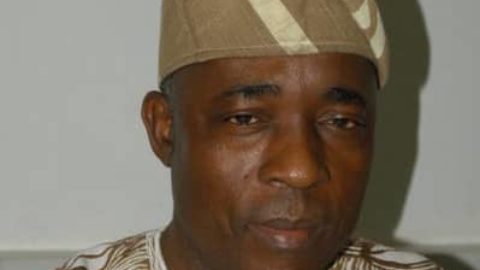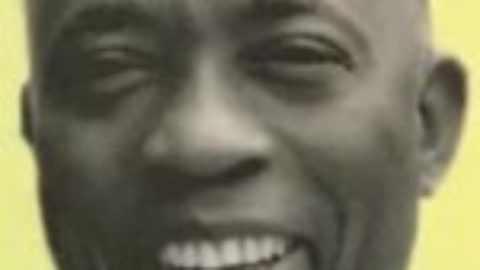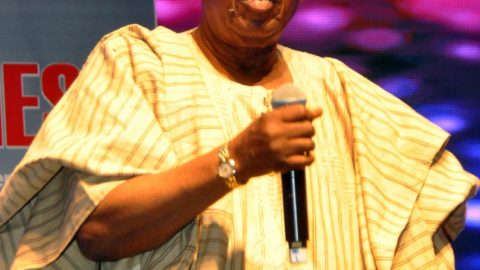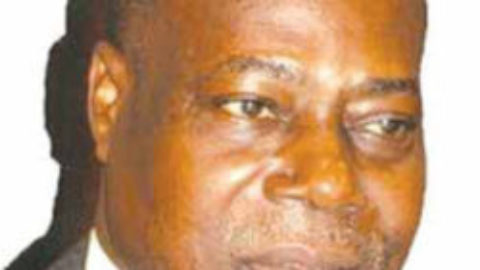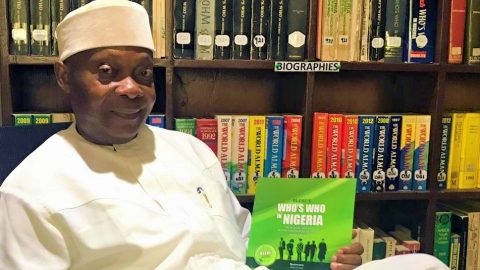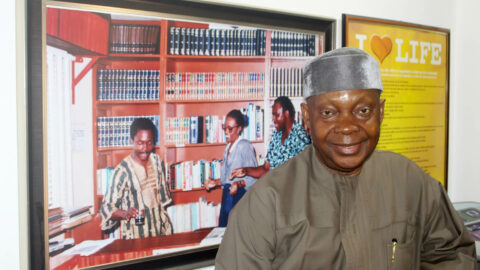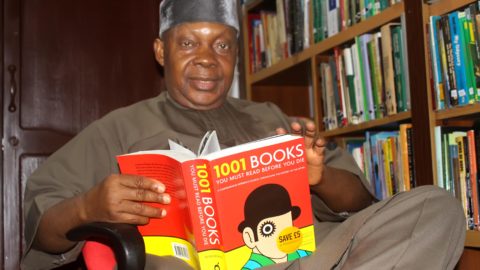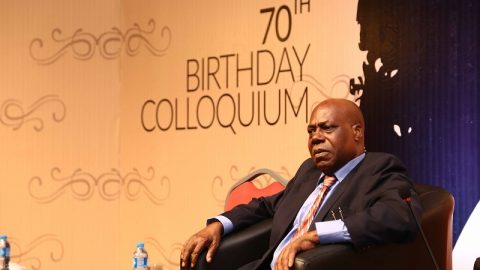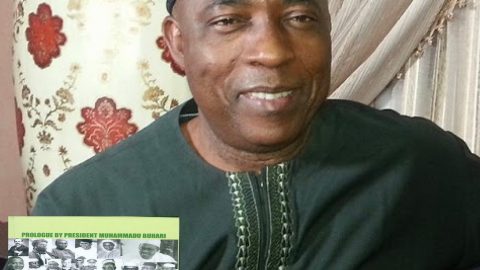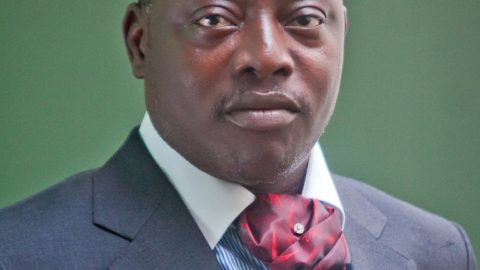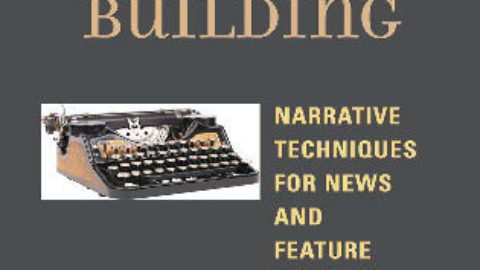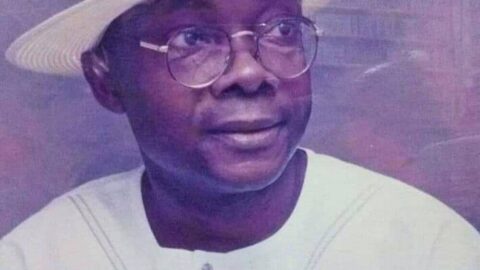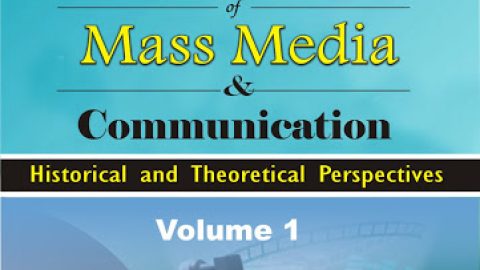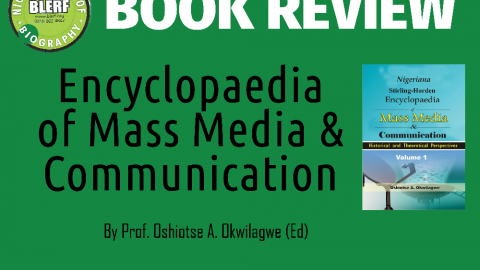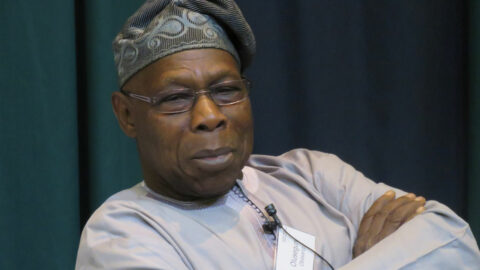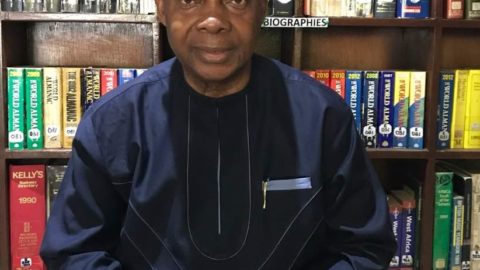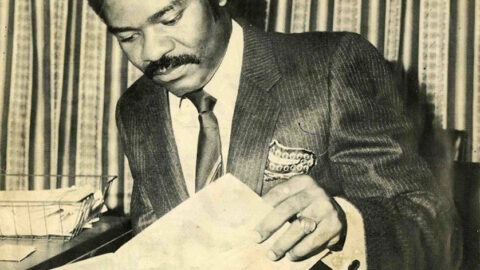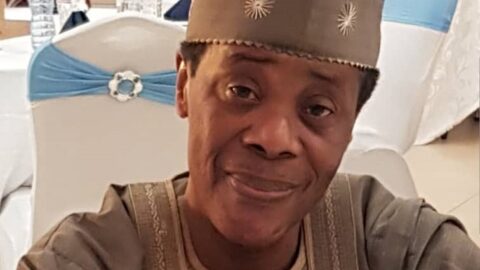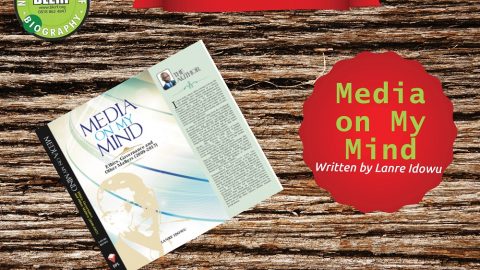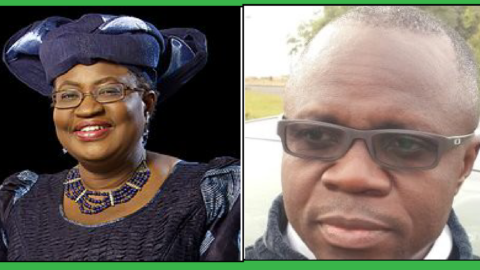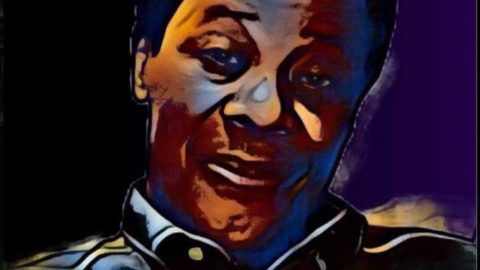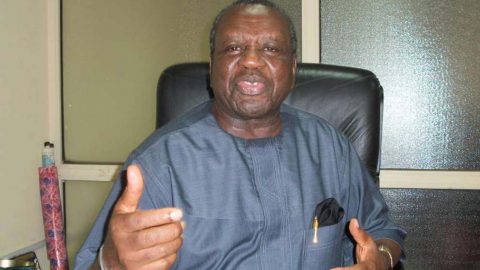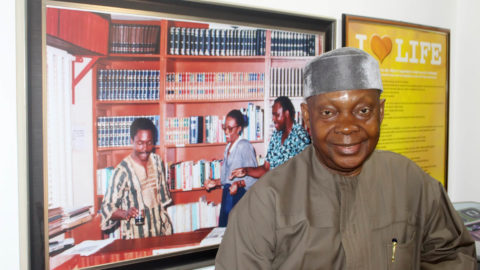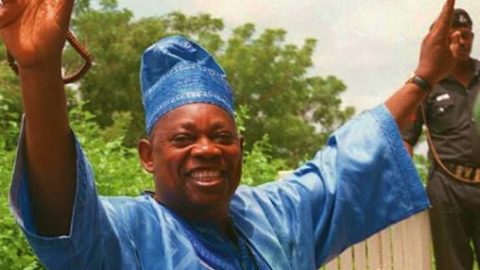A review of Lanre Idowu’s MEDIA ON MY MIND
By Mr Sam Akpe, Consulting Editor, Book Reviews, BLERF.
Give it to Lanre. Column writing is meant for great reporters. When reporters write columns, they are obviously more of in-depth reporting than armchair opinions. This is what you experience as you go through this book. He approaches issues from the perspective of raw news and draws conclusions after leaving no one in doubt as to how he got there.
Media on My Mind may touch on governance and other matters, but it is basically about the failure of journalists and journalism in applying time-honoured ethical considerations while getting the job done. It spares nobody and no issue. His professional authority is unquestionable.
Lanre approaches every issue with the thoughts and insights of a journalism teacher whose heartbeat is to bring the best out of his students. His analysis are anchored on both the judgemental and accumulated experience of an editor and the questioning mind of an investigative reporter.
You are likely to scratch your head and ask, as I did: how can human beings write this way—after reading Jega’s Wobbly Start. It starts with an attractive news peg, which introduces the INEC Chairman’s “embarrassing shoddiness” and shamefaced confusion. Then the name Jega is turned into a noun, a verb, an adjective and adverb. Wow!
In Equalisation of Access, the author begins the political comment with one of Fela’s musical rendition. That quote metaphorically leads the reader through the delicate tight-rope connecting Fela’s graphic musical melody to Goodluck Jonathan’s “resounding victory” at the polls in 2011. Absolutely thrilling!
From stories on terror and bloodshed, the author moves to Death of A Journalist, which chronicles the unthinkable murder of Bayo Ohu of the Guardian and the obvious risks associated with what we do for a living. Then Lanre went to petrol station and was confronted with two bouncers when he tried to take pictures of people struggling to buy the product.
Tale of Two Stories is a narrative on two bombs carried by two Nigerians—one in Lagos and another on board an international flight from Amsterdam to Detroit. The one in Lagos, carried by 27 years old nursing father, exploded while the one that was Detroit-bound did not.
Lanre’s concern is that the media in Nigeria could not feed Nigerians with expected details of the Lagos terror. Instead, journalists concentrated on the Detroit-bound bomb because it was carried by the son of a known Nigerian billionaire. Name connection!
As much as the author wants every journalist to be hardnosed in investigation and reporting, he is bewildered at the rate journalists are murdered across the world by “anarchists who promote violence over reason.” In 2010, he writes that 42 journalists were murdered between January and April. The “sobering statistics” are indeed worrisome.
Still on this risky-filled business, there is a story of a court reporter who got detained on the orders of a merciless Magistrate. The story is the exact opposite of Helping the Enemy where a group took custody of a reporter and hid him from mindless attackers who could have killed him.
An Uncommon Patriot is a tribute to the late Gani Fawehinmi, SAN. It puts in perspective why the media still celebrates the great lawyer. From the monumental lawyer to media legend, Prince Tony Momoh, the author pays respect to the Prince of Auchi, on his 70th birthday in 2009.
Next on the line for a well-deserved tribute in the book is the late Peter Ajayi, the pioneer editor of the Nigerian Herald and former managing director of the Sketch. My first encounter with him was on the pages of Chief Segun Osoba’s autobiography, Battlelines: Adventures In Journalism and Politics.
Here comes the unmistakeable Stanley Macebuh—one of “journalism’s clear-headed thinkers and elegant prose-stylist.” He taught English at the University of California and at Columbian University in New York before joining the Daily Times. Shortly after, he left to pioneer the Guardian with a bunch of shining stars. He later worked with President Obasanjo. Then, he died. And journalism wept nonstop.
There is another beautiful tribute on the Punch—the beautiful newspaper where I worked for almost a decade. The focus actually is on the retirement of big man of the empire, Chief Ajibola Ogunshola, who nursed the newspaper from a murky valley of struggle to the mountain-top of good success.
From Punch to Newswatch, Lanre takes the reader through the birth of the best news magazine of its era founded by some of the brightest in the media industry, before its questionable buy-over by someone with no basic knowledge of the media industry. Nine years after, the trail-blazing magazine is no more. Sad!
Newswatch was sold at a time Tell—its fiercest competitor—was 20 years old. Lanre narrates in summary, the story of the two publications—one had promoted itself as the teller of the news and dismissed the other as the watcher of the news. Truth is that those who founded Tell grew up at Newswatch. Renegades!
The author presents a long essay in honour of Professor Chinua Achebe at his death. It is full of controversial comments by those who consider Achebe to have been a greater literary mind than Wole Soyinka who won the Nobel Prize in Literature in 1986. Needless talk!
Then the man died: the great Allah De; our beloved Alade Odunewu. In journalism, he was regarded as a legend of the highest order. As I write this review, his book, Winners Take All—a compilation of his columns written between 1963 and 1969 is on my shelf. A great newspaper man and columnist, Allah De was an icon in the real meaning of that word.
From Allah De to Nelson Mandela, the author shifts our focus to the reporter in Remi Oyo. She died too. Lanre states that Remi’s success as president of the NGE was anchored on consultation, coordination and communication. He tells the story of how Remi became Obasanjo’s spokesperson in place of Tunji Oseni. Both died before age 62. Pity!
There are two tributes worth a serious attention in honour of Olatunji Dare—a professor of communication and a columnist—and Uncle Sam Amuka—a newspaper publisher and a columnist of the old school. Invaluable lessons can be learnt from these two gentlemen who belong to different generations but are connected by their love for journalism. Beautiful!
From human beings to words, what will Lanre not write about! He believes that some words are more in usage by writers than others. He calls them Tortured Words. Unfortunately, some of these words are usually wrongly applied. For instance, can cars be exotic? How?
Feeling the Heat is a long commentary on Sam Omatseye’s fury unleashed on Chief Awolowo’s family entitled: Awo Family Without Awo. The comment, described as disgusting, offensive, derogatory and vile sparked a war of words between Awoists and the owner of Nation newspaper, Bola Ahmed Tinubu, who had to issue a statement to deny his association with the comments.
Omatseye is said to have stated, “I wrote once that this woman (Awo’s wife) whom Awo described as the jewel of inestimable value has lost value to his cause. If he came back to life, he would have committed the extraordinary act of divorce after death. Even his newspaper, Tribune, has so stumbled and fallen that it swims in Awo’s vomit.” Sacrilege!
Lanre observes that Omatseye’s “frequent grandstanding fits the carriage of a journalistic party stalwart” because his choice of words were scurrilous and indecorous. He equally condemns Omatseye’s abuse of the columnist’s power—a privilege that calls for sobriety, not a display of arrogance that can limit the reach and influence of his otherwise informed commentaries.
I will end this review with Lanre’s review of President Jonathan’s biography which I have still not read. The book, states Lanre, “challenges the media picture of Jonathan as a lucky man, who has been propelled by the hands of fate.” The book offers “insights into the depth of character and strength of will that have moved him upwards throughout his life.” Case closed!
Written in thrilling, simple prose, Media on My Mind is meant for journalists—especially those who are still in the newsrooms. These include reporters, editors, headline writers and columnists. In an age when every budding writer wants to be a columnist, here is an invaluable guide from a veteran you can trust.
Yes, I have not met Lanre before but I feel as though we have just had breakfast together—after reading a few of his books. He has unquestionable newsroom background and well-sharpened reportorial skills that prepared him for the roles he plays today in journalism.
Lanre joined the Daily Times in 1982 and worked for the Guardian as a reporter before moving to the Democrat Weekly where he left as assistant editor in 1985. Between 1985 and 1986, he served as media consultant at the United States Information Service before moving over to Thisweek magazine, first as associate editor before serving as deputy editor-in-chief.
An author of five books, including one on poems, Lanre has personally edited 11 other books and co-edited five; mainly on media and governance. He represents a generation of journalists and media experts whose views are well treasured in the industry.
END


